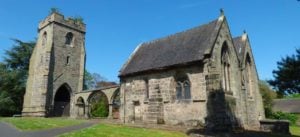What Are Chancel Repair Searches?

A chancel repair search is an essential consideration for potential property buyers in England and Wales, rooted in medieval church laws. This search determines whether a property is liable for contributions towards the repair of the chancel of a parish church, a responsibility that can still apply today due to ancient ecclesiastical parish boundaries.
With the potential for significant financial implications, conducting a chancel repair search is a critical step in the conveyancing process, ensuring buyers are aware of any obligations that may affect their property.
This page aims to guide you through the intricacies of chancel repair searches, outlining what they entail, their importance in modern property transactions, and how to navigate any liabilities uncovered during this process.
Whether you’re a first-time buyer or seasoned in the property market, understanding chancel repair searches can protect you from unexpected costs and legal issues, securing your investment for the future.
What are chancel repair searches?
The origin of chancel repair liability traces back to the medieval period in England and Wales, where landowners were responsible for maintaining the chancel of their local parish church—a part of the church near the altar reserved for the clergy.
This historical obligation was tied to the ownership of certain parcels of land, known as “glebe lands,” which were originally granted to support the church. Over centuries, as the land was bought, sold, and divided, the liability for chancel repairs was often overlooked or forgotten, only to resurface during modern conveyancing processes.
The relevance of chancel repair searches lies in the unpredictable nature of this ancient liability.
It can still legally bind owners of affected properties to contribute towards the upkeep of church chancels, with costs potentially running into thousands or even millions of pounds. Despite reforms, such as the Land Registration Act 2002 which aimed to simplify the identification of such liabilities by requiring their registration, the risk remains for properties in historic parish areas not yet subject to these registrations.
Conducting a chancel repair search is a crucial due diligence step that protects you from unexpected and significant financial burdens linked to a quirk of British history.
What is chancel repair liability?
Put simply, if there is a local church nearby, the homeowner may be liable for repairs to the church.
This dates back many centuries when the rector of the parish was responsible for repairs and upkeep of the chancery (church). This was paid for from his tithes, which are essentially a local tax attached to local land and paid by the landowners.
Although dating back to mediaeval times, even in this day and age, some unwary home buyers can find that their home is built on land which is subject to chancel repair liabilities.
Could you be liable?
Liability is ‘joint and several’. What this means is that you, as a landowner and even if you are not a parishioner, could be responsible for the full cost of repairs to the local church, which could conceivably run into hundreds, if not thousands of pounds.
In recent times, chancel repair liability was pretty much forgotten and it was generally accepted that churches were unlikely to force property owners to pay for the cost of repairs to their local church.
But with overheads rising, reduced income and many of these historical buildings requiring expensive repairs, especially to roofs, some churches may be tempted to take advantage of chancel repair liability.
What you can do to protect yourself
Given the financial implications, you’d expect that properties affected by chancel repair liability would be easy to identify, but this is not always the case, which is why asking your solicitor to conduct a chancel repair search is recommended if you’re applying for a mortgage.
The fee is usually not excessive, and you will find out if the property you want to buy is subject to chancel repair liability.
You can do this yourself by carrying out a chancel liability search with the National Archives.
If you find out that your property could be subject to chancel liability, it is highly recommended that you take out chancel liability insurance.
Premiums may vary, but for a standard residential property, you could expect to pay a one-off premium of around £25 (it may be more depending on circumstances) which will cover you against claims for up to 25 years after you’ve purchased the property.
